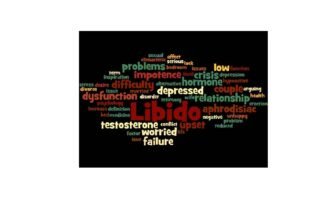Why Doctors Prescribe Metformin for Losing Weight?
Usually, patients with type 2 diabetes are recommended Metformin to manage excessive blood sugar. Still, new research is gradually pointing to the possibility that the drug may also be beneficial in combating other illnesses.
The level of glucose in your bloodstream can be managed with the aid of Metformin. The quantity of sugar your metabolism produces and the amount you intake from eating is reduced by Metformin. The drug also improves how your body reacts to a hormone- insulin, that naturally regulates blood sugar levels. It is the process that helps people lose weight by using the drug.
Additionally, it activates particular chemicals that improve the body’s utilization of fatty tissues, helping you shed pounds. Numerous studies have demonstrated that Metformin helps avoid long consequences of diabetes, such as heart problems and other cardiovascular diseases.
Metformin is a part of a diet strategy that complements proper nutrition and regular physical activity. It usually needs to be taken twice daily with food to help treat diabetes when the medication is being used for that purpose, and it may bring about eight weeks before you start seeing effects.
Follow Your Prescription
Two types of metformin pills, quick-release and extended-release, are available in the market. When you take the required tablets, they begin to function appropriately.
Extended-release tablets remain in your bloodstream for extended periods, while quick-release tablets leave your bloodstream in just a few hours. Metformin is sold under various brand names in different countries.
- Take the medication at roughly the same time each day to make it easier for you.
- Ask your doctor to explain all the questions you may have before you start taking the medication that way, and you can make an informed decision.
- Never take it in a larger or smaller dose than recommended by your physician.
- It would help if you remembered not to crush or chew the metformin pills.
Your doctor may initially prescribe you a small dose of Metformin, then gradually raise it to the required level.
To determine how effectively Metformin is helping, you need to monitor your weight closely. Diabetes or obesity is not cured by Metformin, although it can be managed. Without consulting your doctor, do not suddenly discontinue the medication, as that may produce adverse side effects.
Diets to Follow with Metformin
Specific foods are not required to be avoided when taking Metformin. However, without dietary and lifestyle adjustments, the medication is ineffective. While on Metformin, avoid alcohol and junk food which permanently reduce the effectiveness of weight loss medications.
- Watch Your Carbs
Consuming a lot of carbohydrates can cause weight gain because Metformin doesn’t function as it should when refined or packaged carbohydrates are being eaten. These foods have minimal fiber and nutritional value, so you must stop overeating rice or bread.
It would be best if you also controlled as much as possible sugary drinks like soda, various appetizers, and crackers. While eating things that can raise your blood sugar won’t stop the Metformin from working, it will make its job more challenging.
- Control Saturated Fat Intake
Chronic diseases like cardiovascular disease and inflammation are more common in people with obesity. Saturated fats may create challenges to losing weight because they allow the body to become more inflammatory. They may also cause an unbalanced lipid profile.
Saturated fat is frequently found in foods like red meat and dairy products, which you should eat in moderation. It is recommended that you should concentrate on low-fat dairy products rather than avoiding all of them.
- Eat More Fibre
Fibres aid in weight loss by creating a healthy digestive system. Attempt to consume a lot of fiber at every meal as it would make you feel fuller for longer. You can also take fiber supplements if you wish. However, some research shows that fiber supplements should not be used at the same period as Metformin as it may change the drug’s working.
- Protein and Vegetables
Lean protein sources, including chicken and fish, can help lower the consumption of saturated fats and regulate blood sugar. Have veggies like sprouts, broccoli, carrots, and artichokes on at each mealtime as these are also high in fiber.
After Effects of Metformin
When using Metformin, some of the most typical adverse effects are dizziness, nausea, and diarrhea, but these issues usually disappear over time. In addition, if you take Metformin with food, these side effects will be lessened.
Also, your doctor will probably start you on a lower dose of Metformin and gradually raise it to reduce your risk of developing severe diarrhea. If you have kidney problems, let your doctor know because in that situation, your doctor will most likely advise against taking Metformin. In addition, if you have ever experienced a heart attack, it is recommended that you don’t take the drug.
- Lactic Acidosis
Lactic acidosis is the most severe adverse effect of Metformin despite its rarity. The black box warning for Metformin specifically mentions this danger. Lactic acidosis risk may be raised while taking Metformin and other drugs.
Contact your physician immediately if you have any of the following lactic acidosis symptoms like tiredness, trouble breathing, weakness, nausea, too fast or too slow heart rate, muscle pain, dizziness, or vomiting.
- Low Vitamin B12 Level
Your body’s B12 levels may also drop if you use Metformin. Rarely, this might result in anemia, or low red blood cell counts. You can be more susceptible to deficient levels of this vitamin if you don’t consume enough calcium or vitamin B12 in your diet.
If you stop drinking Metformin or start taking vitamin supplements, your vitamin B12 levels may increase. However, before you discontinue taking Metformin, make sure to consult your doctor.
- Digestive Problems
Your digestion can be affected by metformin use. You can reduce your risk of experiencing this situation by beginning with a modest dose. To lessen the possibility of experiencing adverse effects, beginning with a low amount and slowly increasing it is preferable.
Metformin taken with food can reduce the likelihood of experiencing gastrointestinal upset. Extended-release Metformin is a good choice because the adverse effects of this kind of Metformin are often less severe than the quick-release tablets.
Does Metformin Work?
Despite not being a weight loss medication, Metformin has been linked to weight loss even though there is no established connection between metformin and body weight. One known side effect of Metformin has decreased appetite, which can aid in weight loss. However, you might lose much less than you anticipate.
After taking the medication for a year, the typical weight loss is only a few kilos. Therefore, even though Metformin is frequently prescribed to those who have trouble losing weight or have high insulin levels, it does not work for everyone’s conditions.
To experience significant weight loss, you must adhere to a realistic weight loss strategy that includes a balanced diet and regular exercise. In addition, it’s important to remember that weight loss might be temporary when using this drug.
Therefore, it is crucial to maintain a healthy lifestyle because if you stop taking the medication and your appetite goes back to regular, you can put the weight back on.
Ask your doctor if you can combine Metformin with a drug for weight loss, as you might be able to lose weight with the assistance of this combination. Overall, Metformin can result in weight loss, most likely due to side effects such as a low appetite, but the medicine doesn’t replace conventional weight loss techniques.
It would be best if you Practiced Caution while Losing weight
Rapid weight loss typically happens when the body burns lean mass for energy rather than fat reserves. Once a regular diet is restored, the body starts to rebuild the muscles. Very low-calorie diets often result in that situation unless they are followed closely by an expert and include well-chosen foods.
For many people, exercise may be their only option for weight loss. However, start slowly and check with a doctor before starting a rigorous program. Schemes for quick weight loss are virtually always unsustainable and harmful.
Weight gain is one of the more frequent adverse side effects of rapid weight loss programs. It is because simple water loss usually accounts for the majority of the quick weight loss at the beginning from some of these diets.
Once you start eating normally again, the weight tends to creep back on, frequently more than what you started. The severe nature of these programs may also slow down your metabolism and weaken you even further.
People should ensure they consume the proper amount of nutrients each day when trying to reduce weight. It’s crucial to watch for symptoms that could indicate illness while deciding whether a new diet is proper for you.
Monitor your health if you’ve recently begun a diet to ensure you aren’t putting yourself at risk. You may even need to change your diet if you suffer from a problem like diabetes or irritable bowel syndrome.
Finding a generic weight reduction plan safe for you will probably be challenging because it is often designed for people without these problems. Avoid typical diets and get advice from a nutritionist if you want to reduce weight without endangering your health.






